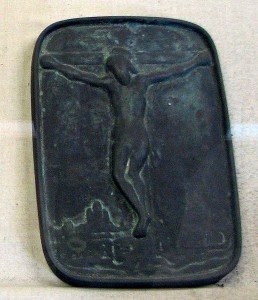
Have you ever experienced such trauma in your faith that you were tempted to renounce Jesus? Have you ever wondered what it might be like for Christians undergoing severe persecution in other countries, and how they might remain resilient? What if God does not rescue them, but is silent? The newly released movie Silence raised such questions for me.
Based on the book Silence (Chinmoku) by Shusaku Endo, Martin Scorsese’s film version chronicles the journey of two Portuguese Jesuit missionaries to Japan in the seventeenth century to locate their spiritual mentor. Rumor had it that he apostatized in the face of horrific persecution. Christianity was outlawed at the time in Japan. The two missionaries also hoped to strengthen the Japanese church in the midst of their tribulations. While they were able to provide some consolation, they found God silent as they watched and endured the greatest test of their faith. Would these missionaries also apostatize? Would they step on the image of Jesus (like the one featured in this blog post) and thereby renounce him? So as not to spoil the show, though the movie may spoil your appetite, I will refrain from sharing more details. Here is the official trailer.
I have written elsewhere at this blog column on the persecution of the Japanese church during this time. See “The Blood of the Martyrs & the Seed of the Church, Love and Tolerance” and “Wounded People Wound Others—Except for Wounded Healers (Part One).” The horrors were nearly unspeakable. Take for example the following account:
The English captain, Richard Cocks (Calendar of State Papers: Colonial East Indies, 1617-1621, p. 357) “saw 55 martyred at Miako at one time … and among them little children 5 or 6 years old burned in their mother’s arms, crying out: ‘Jesus receive our souls’. Many more are in prison who look hourly when they shall die, for very few turn pagans”. We cannot go into the details of these horrible slaughters, the skillful tortures of Mount Unaen, the refined cruelty of the trench.
Scorsese dedicated the movie Silence to Japanese pastors and Christians. How appropriate. I thought of them often during the movie. I lived in Japan with my wife Mariko, and we have returned several times over the years. Last summer, we visited Nagasaki where part of the movie is situated. In watching the movie this week, I was reminded of the pure, simple and profound faith of many Japanese Christians whom I have had the privilege to know over the years. Their persecuted ancestors in the faith would be blessed to know that Christianity in Japan did not die with them.
Christianity almost died in Japan as a result of the persecution. The precipitating factors for the persecution were manifold. It did not help that different European countries had been jockeying for positions of power and influence with the Japanese government. Surely, the threat of European conquest and colonialism in Asia was very real. These and other factors endangered the very existence of the Christian faith in Japan, which prior to the ban had spread extensively. In 1614, the Shogun Ieyasu prohibited Christianity, as it was seen as a great danger to Japan’s well-being. “To maintain political stability, Ieyasu issued the Christian Expulsion Edict prohibiting all Christian activity among Japanese. The shogun also limited foreign trade to Hirado and Nagasaki.” How tragic that the Japanese Christians got caught in the crossfire of the political tensions. It was only when the shogunate that Ieyasu initiated came to an end in the nineteenth century that the official persecution ceased. In 1873, the Japanese government provided formal protection.
The claim was made in the movie by the inquisition that the Japanese believers trusted more in the missionaries than they did God. While no doubt such occurrences existed, there were and are many genuine conversions in Japan. Still, it leads me to ask what I trust in more—the comfort of God’s gracious and merciful love in the face of affliction or comfortable cultural Christianity where being a Christian is fashionable? All of us who bear the name of Jesus must call to mind the Apostle Paul’s words: “all who desire to live a godly life in Christ Jesus will be persecuted” (2 Timothy 3:12; ESV).
I have no way of knowing if I would ever renounce my faith in the face of a horrible crisis. Perhaps those of you who are Christians wonder as well. People renounce their faith for a multitude of reasons, not simply official persecution. The problem of evil in the world, the apparent silence of God in the face of tragedies, an enduring season of doubt leading to denial… The list goes on. Still, the list of faithful witnesses around the world in such places like Japan continues to move me to silent meditation. Their lives and deaths speak volumes to me.












